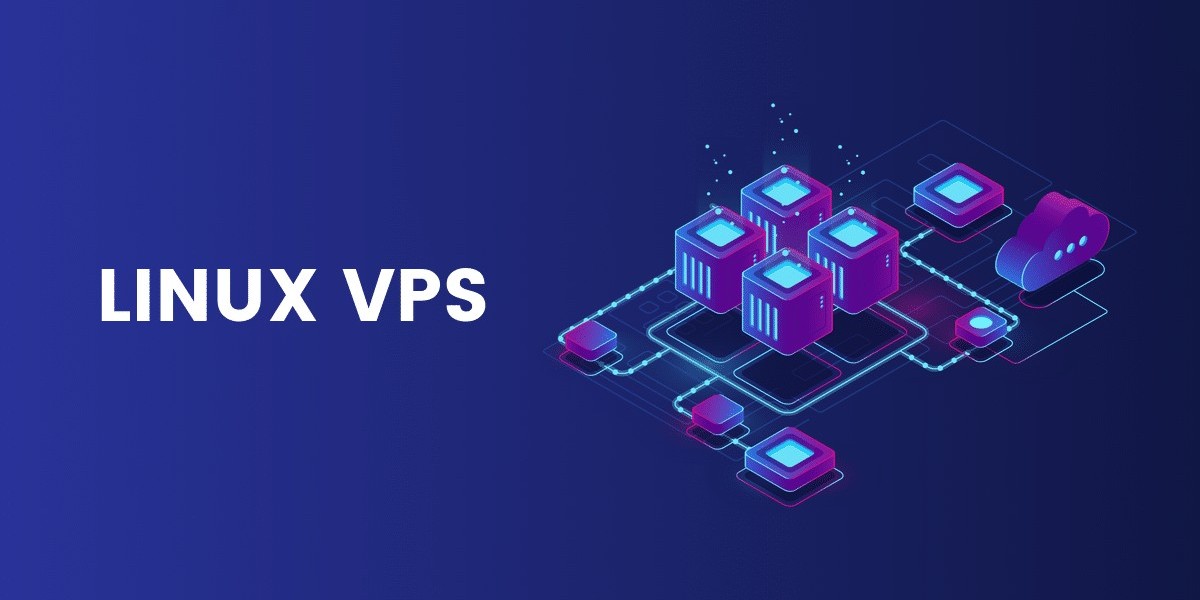In today’s fast-paced digital world, developers are constantly looking for hosting solutions that offer speed, flexibility, security, and control. While shared hosting and cloud-based platforms serve their purposes, many developers consistently lean toward one trusted environment: Linux VPS Hosting.
Offering a balance between affordability and control, Linux VPS Hosting has become a go-to solution for developers deploying everything from simple websites to complex web applications. But what makes it such a favorite among tech professionals?
Let’s explore the key reasons why developers prefer Linux VPS Hosting for app deployment.
1. Full Root Access and Unmatched Control
One of the biggest advantages of Linux VPS Hosting is full root access. For developers, this is like being handed the keys to the kingdom.
With root access, developers can:
Install and configure any software or development stack
Customize server settings for specific performance needs
Create and manage cron jobs or scripts
Secure the environment according to project requirements
This level of control is not available with shared hosting and is crucial for applications that need unique configurations, advanced permissions, or system-level tweaks.
2. Open-Source Environment with Extensive Support
Linux is an open-source operating system, which means developers aren’t locked into proprietary tools or licenses. This openness allows for complete flexibility in choosing the software, frameworks, and databases they need.
Popular developer tools and stacks that work seamlessly with Linux VPS Hosting include:
LAMP and LEMP stacks
Node.js, Python, Ruby on Rails
MySQL, PostgreSQL, MongoDB
Docker and containerization tools
Git and CI/CD pipelines
The Linux ecosystem also benefits from a massive global community. Whether you're configuring a server, setting up a firewall, or deploying an app, there's abundant documentation, tutorials, and forums to guide you.
3. Superior Performance and Reliability
Performance is critical when deploying apps, especially those that expect moderate to heavy traffic. Linux VPS Hosting provides dedicated resources—like CPU, RAM, and SSD storage—ensuring consistent and fast performance.
Unlike shared hosting, where server resources are shared among dozens or hundreds of users, a Linux VPS offers an isolated environment. This means:
No “bad neighbor” effect slowing down your application
Predictable performance even under load
Faster response times for database queries and scripts
These benefits are vital when deploying resource-intensive applications or those requiring low latency and high availability.
4. Robust Security and Customization
Security is always a top concern for developers, especially when dealing with sensitive user data or business-critical applications. With Linux VPS Hosting, developers can implement advanced security practices, including:
Configuring firewalls (like UFW or iptables)
Installing intrusion detection systems (e.g., Fail2ban)
Regularly updating and patching system packages
Creating user-level access and SSH key authentication
Running security audits and logs monitoring
Unlike managed shared hosting, where security settings are often fixed, a Linux VPS allows you to build a custom security environment tailored to your application’s risk profile.
5. Seamless DevOps Integration
Today’s modern development workflow is heavily influenced by DevOps practices—automated deployment, continuous integration, and infrastructure as code. Linux VPS Hosting is perfectly suited for these methodologies.
With Linux, developers can:
Set up Git for version control and code deployment
Use Jenkins, GitLab CI, or Travis CI for automated testing and deployment
Deploy containerized applications using Docker or Kubernetes
Automate infrastructure with tools like Ansible, Chef, or Puppet
This kind of flexibility is often difficult (or impossible) to achieve on shared hosting platforms.
6. Scalability for Growing Applications
Another key reason developers love Linux VPS Hosting is its ability to scale. As applications grow and attract more users, hosting requirements also increase. VPS environments are easily scalable—developers can upgrade CPU, RAM, or storage without migrating to a new server.
Many hosting providers offer one-click or real-time scaling options, allowing applications to handle traffic spikes without downtime. This is especially useful for startups, SaaS platforms, and dynamic web apps that may experience unpredictable growth.
7. Cost-Effective Compared to Dedicated Hosting
While dedicated servers offer full control, they can be prohibitively expensive, especially for freelance developers or small teams. Linux VPS Hosting strikes a balance by offering:
Dedicated resources
Full root access
Customization capabilities
...all at a fraction of the cost of a dedicated server.
The cost-efficiency of Linux VPS is further enhanced because the Linux OS itself is free and open-source—there are no licensing fees, unlike Windows-based environments.
8. Flexibility in Operating System Choice
Most Linux VPS providers offer a variety of distributions to suit different developer needs. For example:
Ubuntu is beginner-friendly and widely supported.
CentOS/AlmaLinux is known for stability and enterprise use.
Debian is lightweight and minimal for resource-conscious developers.
Being able to select the operating system and configure it from scratch ensures the development environment is perfectly aligned with project requirements.
9. Ideal for Hosting Multiple Environments
Developers often need to set up multiple environments—development, staging, and production. With Linux VPS Hosting, you can isolate these environments on the same server using:
Virtual hosts or multiple domain configurations
Docker containers
Separate users and permissions
This setup is incredibly useful for testing new features before going live and maintaining a clean, efficient deployment pipeline.
Conclusion:
From root access and high performance to open-source flexibility and seamless DevOps integration, it’s easy to see why developers overwhelmingly prefer Linux VPS Hosting for app deployment. It empowers them with the tools, freedom, and scalability they need to build, test, and scale applications efficiently and securely.
Whether you’re deploying a simple blog or a complex SaaS platform, Linux VPS Hosting offers the perfect blend of control, customization, and cost-efficiency. If you're a developer seeking a hosting solution that grows with your projects, Linux VPS is not just an option—it’s the smart choice. Visit Host Namaste to get more information.








